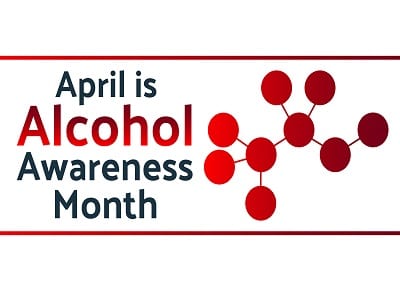About 95,000 Americans die each year from alcohol-related causes, making it the country’s third most preventable cause of death, according to the 2019 National Survey on Drug Use and Health. Alcohol use contributes to over 200 different diseases and injuries, increases suicide risk, fuels risky or violent behavior, and tears apart families.
The more people understand that irresponsible alcohol use—including just one instance of binge drinking—can kill, the fewer people will experience devastating losses.
The American Medical Association first recognized alcoholism as a chronic, treatable disease in 1956. Alcoholism is now classified as alcohol use disorder (AUD) or substance use disorder (SUD).
Alcohol use statistics compiled by The National Survey of Drug Use and Health Data in 2018 found:
- Over 14 million Americans ages 18 and older had AUD.
- Over 414,000 adolescents ages 12 to 17 had AUD.
- Over 26 percent of those surveyed engaged in binge drinking the month prior to the survey.
- Alcohol-impaired driving fatalities accounted for 31% of all driving fatalities.
While overuse of alcohol can cause physical and mental harm to drinkers of any age, alcohol use can be especially damaging to the adolescent developing brain and may cause permanent impairment.
Statistics often refer to the thousands of people who die each year from alcohol-related motor vehicle accidents, but misuse of alcohol also contributes to sexual assaults, domestic and other violence, drownings, suicide, falls, and overdose deaths.
The National Institute on Alcohol Abuse and Alcoholism warns that high intensity or binge drinking is an emerging trend. Those who engage in binge drinking are many times more likely to be admitted to an emergency room and more likely to die from excessive drinking than those who do not binge drink.
Education is the key to reducing the devastation that excessive alcohol use causes to individuals, families, the community, and society at large. Alcohol Awareness Month seeks to diffuse the myths about alcoholism and to increase understanding of the disease.
History of Alcohol Awareness Month
In 1987, the National Council on Alcoholism and Drug Dependence (NCADD) designated April as Alcohol Awareness Month. Their mission was to create a public health outreach program to spread awareness about the risks associated with the misuse of alcohol. The program originally focused on educating college students about the risks of alcohol use but has since become a national movement to help people of all ages understand the dangers inherent in alcohol use.
NCADD is an advocacy organization made up of individuals from the medical, scientific, political, and social fields. Members work together to overcome the stigma of alcoholism by increasing public understanding of the disease, advocate for more accessible treatment resources and provide community service centers, now called the National Network of Affiliates, to help individuals and families with alcohol-related problems.
The more the public understands that alcohol is a chronic but treatable disease, the more people feel comfortable reaching out for help. Spreading awareness about the risks of alcohol, the signs and symptoms of an alcohol use problem, and removing barriers to treatment resources saves lives.
By participating in Alcohol Awareness Month, you are helping to get information and treatment resources to those in need.
How to Support Alcohol Awareness Month
Individuals, community groups, and organizations like schools, healthcare practitioners and facilities, faith-based organizations, law enforcement, substance abuse treatment facilities, and others can make a difference by conducting educational campaigns throughout the month about the dangers of unhealthy alcohol consumption and how to get help if you or someone you love has a problem.
All of this month’s events will be educational in some form. NCADD encourages young people and parents to take part in Alcohol Awareness Month to better understand how alcohol use affects lives and how to find treatment resources for themselves or a loved one. Ways you can get involved include:
- Plan, promote, or attend events that increase the public’s understanding of the treatment and prevention of alcoholism.
- Launch a social media or print media campaign to highlight the warning signs of AUD, how to talk to a loved one about a drinking problem, and how to find treatment.
- Work to increase understanding about how the stigma against alcohol dependence prevents people in need from seeking help.
Use the following information to help educate yourself and others about the dangers of excessive and underage drinking.
- The Substance Abuse and Mental Health Services Administration’s (SAMHSA) underage drinking prevention campaign, “Talk. They hear you”. provides talking points for parents and others when approaching children as young as nine years old about the dangers of alcohol.
- The National Institute on Alcohol Abuse and Alcoholism (NIAAA) and the Community Anti-Drug Coalitions of America (CADCA) partnered to produce two videos, “Teens and Alcohol: A Bad Mix” and “College and Drinking: A Risky Curriculum”.
- Another CADCA video developed in partnership with the Center on Alcohol Marketing and Youth (CAMY) at the Johns Hopkins Bloomberg School of Public Health “Regulating Alcohol Outlet Density: An Action Guide”, offers community prevention strategies to decrease alcohol use in a given geographic area.
Help kick off Alcohol Awareness Month by abstaining from alcohol for three days over Alcohol-Free Weekend, from April 2nd to April 4th.
If you plan to conduct a block party, town hall meeting on underage drinking, a social or print media campaign, or another way to spread awareness about alcohol-related issues, please share your approach with others on CADCA’s Facebook page.
Turning Point of Tampa has been offering Licensed Residential Treatment for Addiction, Eating Disorders and Dual Diagnosis in Tampa since 1987.



